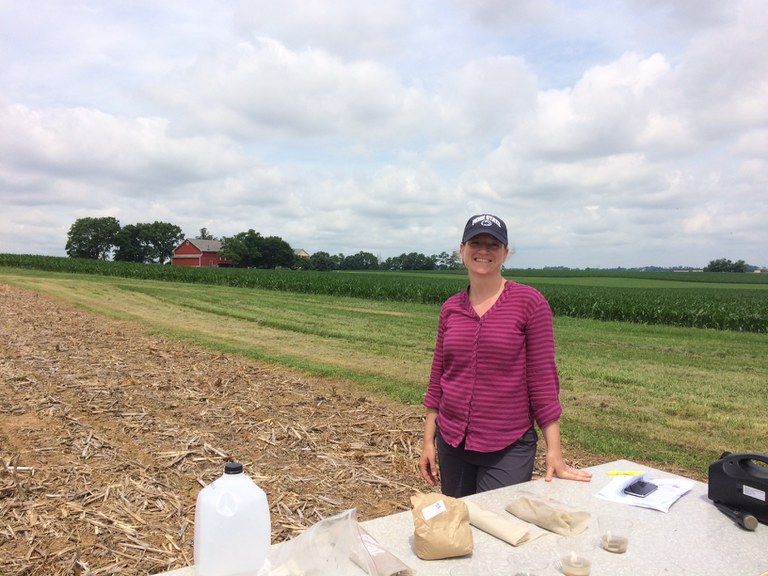Posted: February 10, 2017
Penn State Extension is part of a recently announced Regional Conservation Partnership Program provided by USDA NRCS to support soil and water conservation efforts on farms in Centre, Clinton and Lycoming Counties. Along with Extension, lead partner Chesapeake Bay Foundation will work with the Pennsylvania No-Till Alliance, Pennsylvania Association for Sustainable Agriculture, and local conservation districts and NRCS offices to conduct outreach, education and research to accelerate adoption of soil health practices to improve water quality.
Restoring the Chesapeake Bay is a complex and challenging problem. It must be approached at the landscape level, in every corner of a massive, 64,000 square mile watershed home to nearly 18 million people. Everyone, including farmers far up stream in the watershed in north-central Pennsylvania, have a role to play. And it starts with the small streams running through their farms and the lands on which they depend for their livelihood.
A new partnership has launched in this region to leverage scarce resources and provide the outreach, education, technical and financial assistance farmers need to implement conservation. In December 2016, the USDA Natural Resources Conservation Service announced a $396,000 award under its Regional Conservation Partnership Program to launch this partnership. The Chesapeake Bay Foundation will serve as the lead partner in this innovative initiative involving Penn State Extension, the Pennsylvania No-Till Alliance, Pennsylvania Association for Sustainable Agriculture, and local conservation districts and NRCS offices. Partner match toward the award will provide approximately $800,000 to support implementation of conservation practices on farms in Centre, Clinton and Lycoming Counties.
"This funding is good news for Pennsylvania farmers, their land and local rivers and streams. It will enhance the productivity and economic well-being of participating farms, by not only improving the soil, but by keeping it on the farms as well," Executive Director of the Chesapeake Bay Foundation, Harry Campbell said in the release announcing the project.
Penn State Extension is excited about its role. "We'll work with area farmers to establish on-farm research sites that allow us to test newer conservation strategies in partnership with farmers at the field scale," explains Kristy Borrelli, Sustainable Ag Extension Educator with Penn State. "RCPP helps focus resources in high interest areas without taking resources from the rest of the state." This ensures funding is more efficiently used where there is a documented need.
Extension will also work with the partners to transition the research strategies to on farm practices. Funding will be provided for outreach and education, and for farmers to receive technical assistance in order to implement best management practices on their own land.
"We know there are farmers who want to do the right thing, and in a lot of cases, funding gets in the way," said B.J. Small, state media and communications director for the Chesapeake Bay Foundation. The goal of the RCPP is to provide support to specific projects that focus on improving on-farm soil health--a high priority for farmers--and in turn, improving water quality throughout Pennsylvania.
With a strong collaboration of all the partners involved--from conservation groups to farmers to researchers--a shared common goal of healthy soil, clean water, and community improvement bodes well for this new RCPP initiative.


